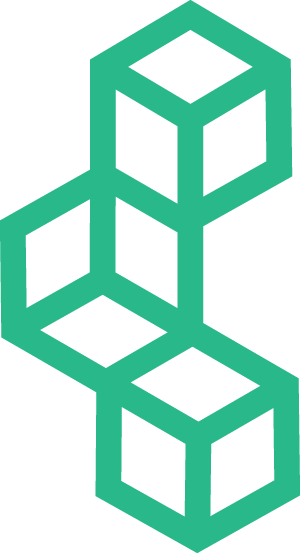The COVID-19 pandemic fundamentally reshaped our lives and work, driving rapid industry changes. In facilities management, the emphasis has shifted toward flexibility, employee well-being, and technology integration. Remote work and hybrid models have become the norm, prompting companies to reevaluate how spaces are designed and utilized. As digital transformation takes center stage, facility planning must prioritize not only efficiency and safety but also employees' physical and mental health, all while adapting to an increasingly dynamic and digital landscape.
Trends Transforming Facility Planning
Digital transformation is an unfolding revolution that is transforming strategic facility planning. As a result, technology and information management play an increasingly important role in facility planning. Accordingly, the newest trends in facility planning echo these shifts. This blog discusses the top trends in facility planning.
Intelligent Building Technology
IoT, or the Internet of Things, collects and exchanges data between physical devices connected via internet protocol. Simply put, it connects things (machinery, sensors) to the internet.
View Case Studies to learn How Enterprise Solutions Improve Businesses.
Sensors are now more affordable, and internet connectivity is faster and more reliable than ever, making the IoT sufficiently accessible that industry experts at Manufacturing Automation predict that the number of connected devices will top 50 billion worldwide.
Strategic Facility Planning for Higher Education.
Additionally, intelligent building technology helps facility managers establish a more habitable, energy-efficient environment, manage building systems and assets, and plan for future needs of the built environment. Further, a recent Forbes report anticipates over 41.6 billion connected devices by 2025.
Emerging Technologies Enhance Productivity and Collaboration
As we move into a world where everything is connected, this new "smart infrastructure" must be equipped with asset and facility management tools capable of handling the scale and lifecycle of dispersed yet connected physical assets.
Strategic Facility Planning for Schools.
In the metaverse, technologies that use artificial intelligence, virtual reality, and augmented reality will help to bridge the gap between the virtual and the physical workplace.
Using artificial intelligence to monitor physical assets and gather data makes it easier for facility managers to predict the proper lifecycle of capital investments before their performance is affected or the asset fails. In addition, having this type of data enables facility management teams to perform preventive maintenance more effectively and address possible issues before they become problems.
While we're still years away from this reality, companies are already investing in the technologies that will make it possible — and intelligent leaders are paying attention.
Data Analytics Drive Decisions
As innovative building technology advances and becomes a key component of the latest trends in facilities planning, data analytics will play a more significant role in decision-making. The proliferation of the Internet of Things makes more innovative analytics, such as Big Data, necessary.
Advanced analytics with Big Data allow facility planners to gain meaningful insights by collecting information from machinery. Facility management teams can also benefit significantly by mining these data sets and quickly detecting deterioration before it becomes a real problem.
Capital Planning for Facilities Management.
With more accurate data about average occupancy, peak occupancy, and space usage, This data will empower facility planners for corporate real estate to make more strategic decisions about how much space to lease and adjust floor plans to support various scenarios.
Expanded Building Information Modeling
Building information modeling (BIM) software maps a physical asset throughout its functional lifecycle, from design and construction to ongoing maintenance. Accordingly, BIM enables architects and facility executives to plan more innovative buildings from the ground up and take a more proactive approach to repairs.
BIM offers massive opportunities for radically improving collaboration and communication for facility managers. Traditionally used by contractors and architects, Building Information Modeling (BIM) is a tool for developing and scaling virtual models of building projects.
Discover more about developing Digital Twins for facility management and capital planning.
While BIM is not a new technology, it is increasingly commonplace in the facility management sector. BIM offers Facility Managers a complete visual model of facilities, physical assets, and infrastructure. As a result, facility professionals can harness the power of these tools to improve project management, delivery, and data accessibility.
What is Strategic Facility Planning?
When integrated with existing work order programs or facility maintenance software, BIM software improves facility teams' ability to retrieve accurate asset information and insights. Data from BIM software can reduce costs, improve efficiency, reduce safety risks, and enhance facilities management. In the coming year, more organizations will likely adopt this policy globally.
The Consolidation of Workplace Technology
As mergers and acquisitions occur, companies will continue simplifying their software and technology. This consolidation will streamline processes and reduce the size of workplace technology stacks. Rather than implementing dozens of single solutions, facility leaders will examine integrated facility and capital planning solutions that connect many different data sources for a seamless and holistic reporting and planning process.
Into the Future with Intellis
Facility planning is evolving to connect those who manage facilities and those who rely on them. Current trends show that employers and service providers are shifting from a transactional approach to a more experiential one. New technologies drive significant change in the facility management industry, with immense growth potential.
At Intellis, we stay at the forefront of technological innovations that are reshaping the future of Facilities Planning. We aim to leverage these advancements through enterprise solutions like the Foundation System to deliver the best software for ensuring healthy buildings and infrastructure. Focusing on reducing costs, improving productivity, and enhancing sustainability, we provide our clients with cutting-edge tools for long-term success. Contact us today to learn how we can help you transform your facility management strategy!


